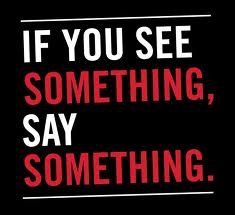BriefConsulting 2.5: Saying Something

Brief Consultants often work in pairs, one seeming to engage while the other looks to be just hanging around the edges there. The one who looks like they’re slacking, they’re in charge.
Even when I’m working solo, this Brief Consultant watches because most of my presence value comes from me noticing something. I engage briefly because it doesn’t take long for me to inherit the same blind spots as everyone else within that space. For a brief few hours, I can see more than anyone already immersed in that soup, and no context needs more than a day or two to weave its trance. Nobody feels anything as perception fades.
This ability doesn’t make me anyone special. I can’t, for instance, see through my own walls. Neither can you. No matter what you do, you won’t find fresh perspective without some fresh perspective entering. Even this Brief Consultant goes stale in a day or two.
Observing, though, only explains about a quarter of the skill. Any fresh observer might see what needs seeing upon entering, but still fail to find the voice to say something, or fail to say something someone else might find hear-able. Saying something sometimes means talking about what I’m not supposed to talk about, but how could I, a perennial new-by, know what’s not allowed? Not knowing what’s not allowed should be a prominent credential of every truly Brief Consultant.
When this Brief Consultant sees something, he says something. Not usually some authoritarian directive; more often a simple question. The best questions are the ones I couldn’t possibly answer for myself. I’m learning that I never know what another’s behavior means unless I ask.
“Do you usually smile when you’re working?” ... ... ”You didn’t realize that you smile when you work? Well, just then you were smiling. Rather self-satisfyingly.”
The best engagements find the client catching them self being them self. Doing something, often masterfully, that they hadn’t before noticed themselves doing. If the client isn’t broken—probably only stuck—they’re most likely temporarily disconnected from noticing some special something. That’s why, when I’m consulting, when I see something, I feel obligated to say something.
©2012 by David A. Schmaltz - all rights reserved


